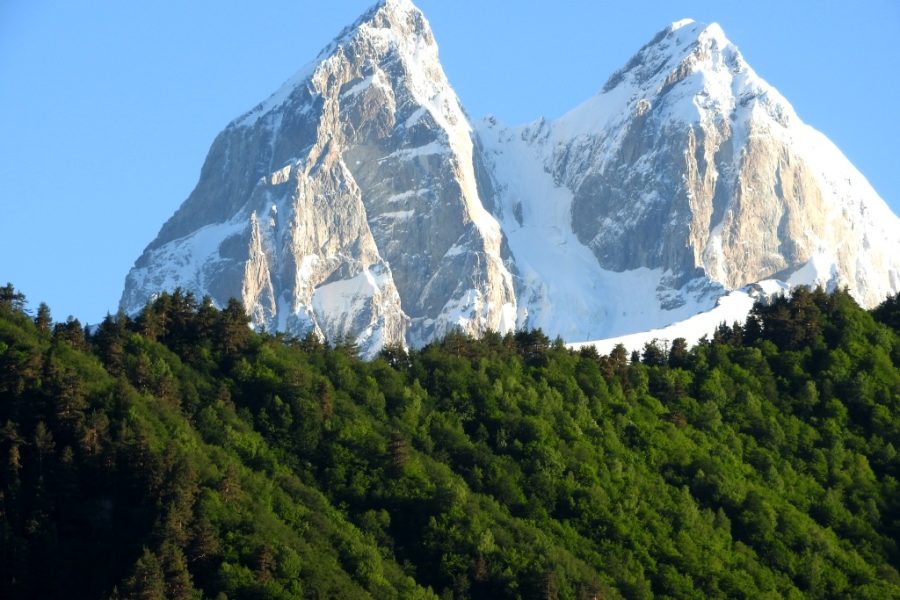Uzungöl: The Alpine Paradise of Trabzon
Just across the border in Turkey, nestled in a lush green valley of the Pontic Mountains, lies Uzungöl, a destination of extraordinary beauty that has become a favorite for travelers from Georgia. Its name means “Long Lake,” and it was formed when a landslide dammed the Haldizen stream. What makes Uzungöl so iconic is not just the lake itself, but the perfect alpine scene it creates: a serene body of water with a picturesque village and a slender mosque minaret on its shore, all framed by steep, forest-covered mountains. Uzungöl is a highly developed tourist destination, a stark contrast to Georgia’s wild, remote alpine lakes. The area is filled with hotels, restaurants, and souvenir shops, catering to the thousands who visit for its postcard-perfect scenery. It offers a comfortable way to experience a dramatic mountain landscape. Visitors can stroll along the paved lakeside promenade, rent paddle boats, or hike on the trails that lead up into the surrounding hills for spectacular views. For many Georgians, a trip to Uzungöl is a popular and accessible international excursion into a different, yet familiar, Black Sea mountain culture.
Identification and Location
- Name: Uzungöl (Long Lake).
- Location:
- Country: Turkey
- Region: Black Sea Region
- Province: Trabzon
- Nearest Major Landmark/Area: Located in the Pontic Mountains (Lazistan Range).
- Coordinates: Approximately 40.6236° N, 40.3014° E.
- Connections: Formed on the Haldizen Stream.
Physical Characteristics
- Surface Area: Relatively small, approximately 0.5 square kilometers.
- Maximum Depth: Around 15 meters.
- Elevation Above Sea Level: Approximately 1090 meters.
- Water Source(s): Haldizen Stream, mountain runoff.
- Outflowing Stream(s): Haldizen Stream.
- Water Type: Freshwater.
- Geology of Basin: Landslide-dammed valley.
Ecological Information
- Flora: Surrounded by dense temperate rainforests, primarily spruce and beech.
- Fauna: The lake is known for its trout populations. The forests are home to diverse wildlife.
- Water Clarity: Generally good, with a greenish hue.
- Conservation Status: Designated as a Nature Park and a Special Environmental Protection Area by the Turkish government.
Human Interaction and Significance
- Historical Significance: A traditional highland settlement (‘yayla’) that has transformed into a major tourist center.
- Current Use: A major hub for domestic and international tourism. Activities include boating, hiking, and gastronomy.
- Environmental Issues: The rapid and often unregulated tourism development has led to significant environmental pressures, including pollution and habitat degradation, which are subjects of ongoing concern and debate.
- Management and Conservation Efforts: Government efforts are in place to manage tourism and mitigate its environmental impact, though challenges remain.
- Local Communities: The local economy is now almost entirely dependent on tourism.
Interesting or Unique Facts
- Its name literally means “Long Lake” in Turkish.
- The combination of the lake, the village, and the mosque has become one of the most iconic and photographed landscapes in Turkey.
- It serves as a prime example of a natural site transformed by mass tourism.



Leave a review